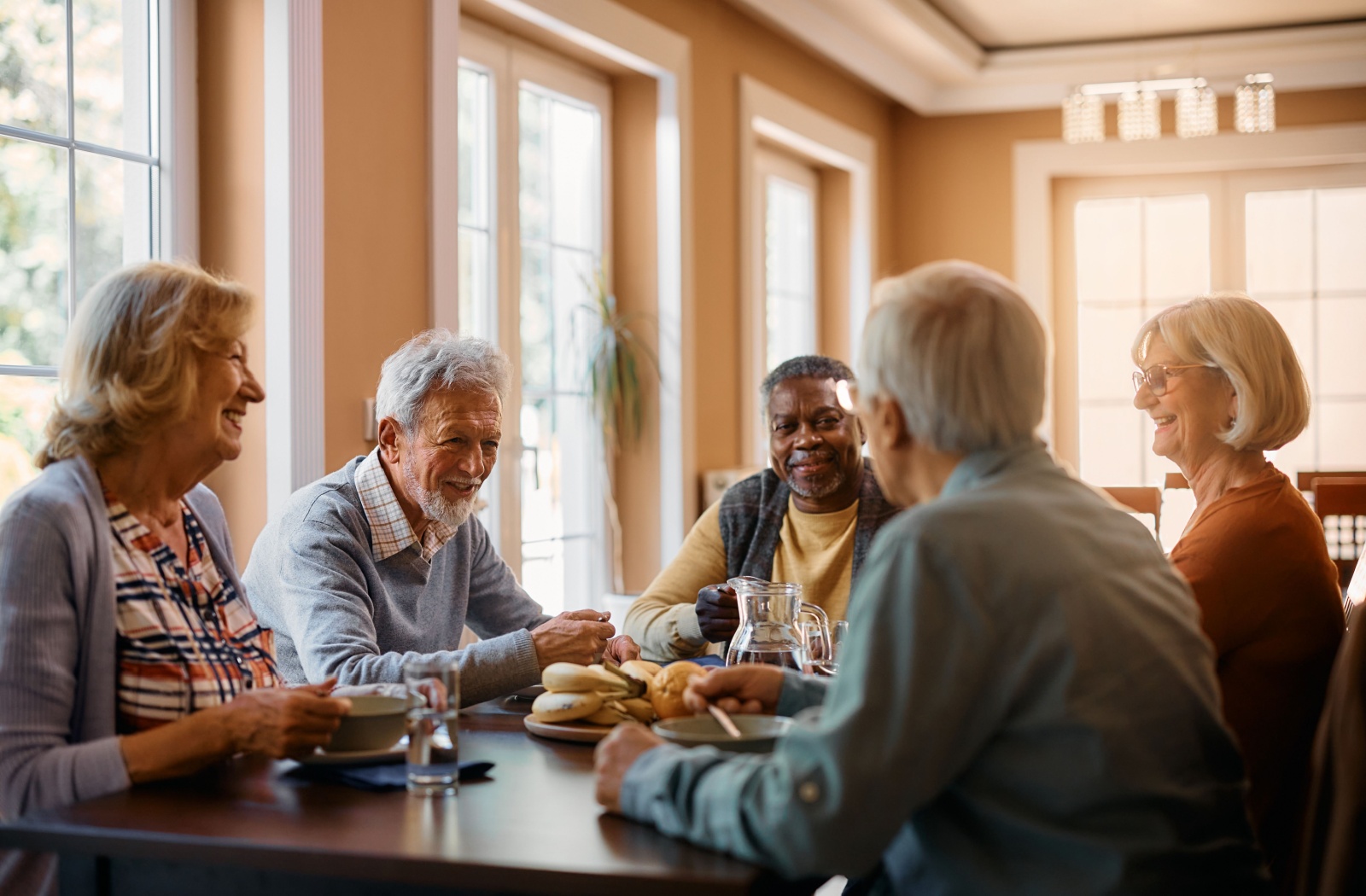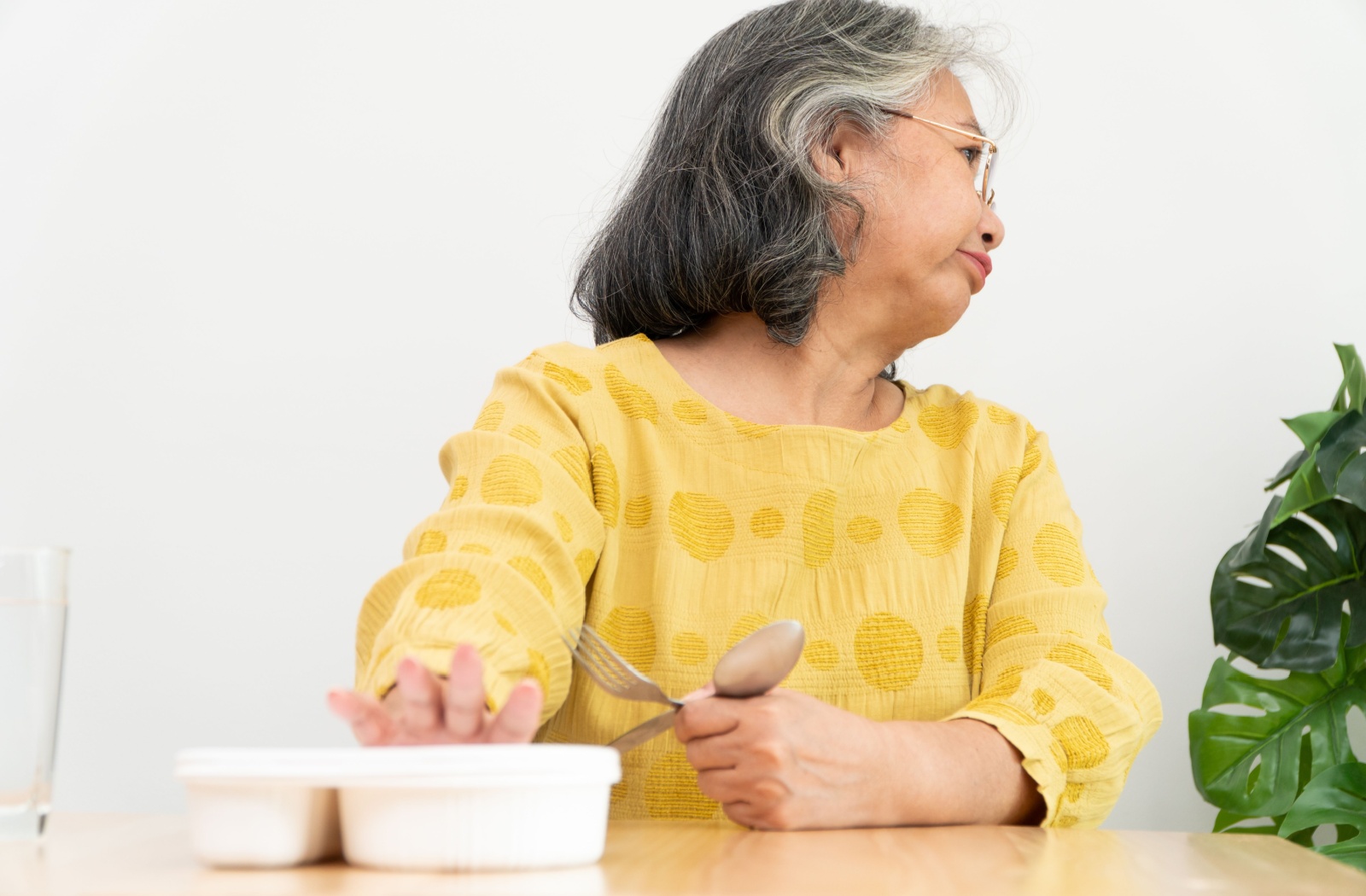For many, a natural decline in appetite can pose significant health challenges. A waning hunger can lead to weight loss, nutritional deficiencies, and a decreased quality of life.
Through smart dietary strategies, a touch of culinary creativity, and a wealth of patience and support, caregivers can help seniors rediscover the pleasures of nourishing meals.
Addressing the issue requires a nuanced understanding of the causes and a compassionate approach to encouraging healthier eating habits. Here’s how caregivers, dieticians, and other health professionals can stimulate appetites and meet nutritional needs.
Understanding Appetite Loss
As we age, we can experience appetite loss for various reasons, including a decreased sense of taste or smell, depression, or social isolation. Certain medications can also impact hunger, and medical conditions may disrupt regular eating patterns.
Tips for Stimulating Appetite
Serve Smaller, More Frequent Meals
Offering smaller portions throughout the day can make eating less complicated for those experiencing low appetite. Regular, small meals also maintain a consistent nutrient intake throughout the day and can prevent long gaps of fasting that might lead to decreased hunger cues.
Variety Is the Spice of Life
Rotating food choices and introducing new flavors can reduce taste fatigue and provide more nutrients. Nutritional variety is crucial in making meals exciting and enticing.
The Art of Presentation
Never underestimate the power of a well-presented plate. Making meals colorful and pleasing can inspire more engagement with food.
Encourage Physical Activity
Regular, gentle exercise can help boost overall health and increase appetite. Movement helps stimulate hunger hormones and can make mealtimes more rewarding.
Create a Sociable Eating Environment
Eating should be a social and enjoyable activity. Setting a table, having conversations during meals, and creating a relaxed ambiance make the dining experience more pleasurable and can improve food intake.
Infuse Flavor with Herbs & Spices
Enhancing meals with a variety of herbs and spices increases palatability without relying on excessive salt or sugar, which is particularly helpful for anyone watching their intake due to health concerns.
High-Calorie, High-Protein Snacks
Nutrition-dense snacks are vital for seniors who need to supplement their dietary intake. Cheese, nuts, yogurt, or fruit offer a combination of proteins, fats, and other nutrients that can help sustain energy and support muscle health.
Medications & Appetite
If a senior takes medications influencing their appetite, discussing potential adjustments with their healthcare provider for improved nutritional health is key. They may be able to provide alternative medicines that will not affect one’s appetite, or explore other alternatives to ensure a balanced diet.
Be Supportive, Not Pressuring
Patience and compassionate support go a long way. Creating a pressure-free environment can help seniors feel more comfortable with their eating habits. Strict rules are often counter productive.
Nutritional Advice for Caregivers & Seniors
Eating a balanced diet across all food groups helps support overall health:
- Protein is essential for preserving muscle mass
- Fruits and vegetables offer a range of essential nutrients
- Whole grains provide complex carbohydrates for energy
- Healthy fats support cardiovascular health and nutrient absorption
Hydration is also pivotal—many seniors do not drink enough fluids, which can affect their overall well-being. If plain water is unappealing, flavorful hydrating options like herbal teas or fruit-infused water are good alternatives.
While correct portion sizes matter, flexibility and observation are necessary. If an individual is not eating enough or is losing weight, it may be appropriate to introduce nutrient-dense foods or supplements into their diet. Always consult with healthcare providers to tailor dietary plans, especially if there is a medical condition that could be influencing appetite.
Additional Resources
For further guidance, consider exploring online platforms for dietary supplements, interactive meal planning tools, and telehealth or joining support groups where experiences and strategies can be shared. These resources can offer invaluable insight into managing appetite loss in our aging loved ones. They can be an excellent source of comfort and information for caregivers and health professionals.

Come Dine with Us
Join us at Fleming Farms Senior Living for a dining experience that can be pleasant and satisfying while nourishing the aging body. By working together, we can help stimulate your loved one’s appetite with nutritional meals.
Book a tour today and see what we can do to help improve residents’ quality of life with a loss of appetite.









